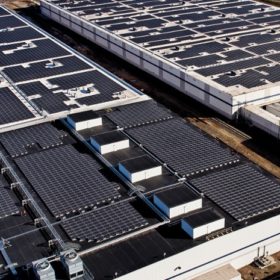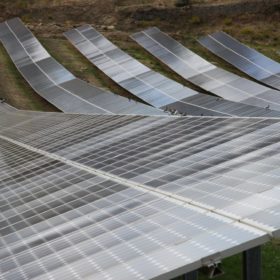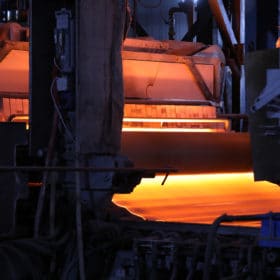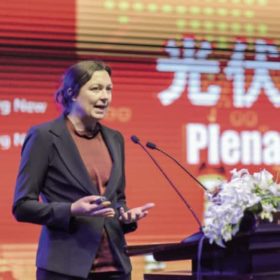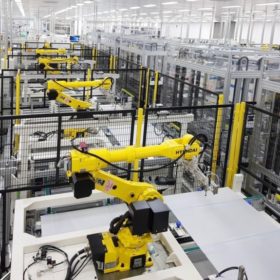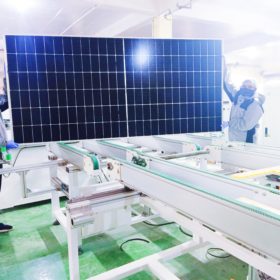Solar power prices rising with demand
Recent BloombergNEF research shows that corporations procured a record 31GW of renewable energy in 2021, and LevelTen Energy says that growth occurred despite more than a year of price increases.
New poly fabs could head off first-half solar project slowdown
Norwegian analyst Rystad Energy has warned the solar industry could suffer the same effects of rising input prices as onshore wind developers grappling with ever more costly steel, with much hinging on how much solar panel raw material polysilicon can be manufactured.
Borosil Renewables to expand solar glass manufacturing capacity to 2,000 tons per day
The solar panel glass manufacturer expects strong growth in demand for its products at home and abroad with a significant rise expected in the production of PV modules in the USA and Europe.
Solar manufacturers request early allocation of INR 19,500 crore boost to PLI Scheme
All stakeholders are expecting the Indian Renewable Energy Development Agency Limited (IREDA) to expedite and issue letters of award to balance companies that have bid under the production-linked incentive (PLI) scheme for solar. Most players have already acquired land and some have even done the land development work and basic construction in anticipation of the award pending for the last three months.
Tapping the off-grid solar market in India
Ashutosh Verma, founder of solar appliance manufacturing company Exalta India, says the key to increasing the uptake of solar products in rural areas lies in improving the access to finance, infrastructure to retain the technology, and awareness on usage.
‘Solar and wind deployment could not now be stopped if we wanted to’
BloombergNEF’s Jenny Chase has surveyed the state of affairs in world solar for clean energy journal Joule and said the technology’s historic ability to surmount obstacles – and persistently confound analysts’ predictions – should offer a reason for hope.
Hyundai enters heterojunction PV module business
Hyundai wants to use a partnership with South Korean PV equipment supplier Jusung Engineering to commercialize solar modules based on 24.45%-efficient heterojunction solar cells.
How solar installations can benefit real estate developers
For real estate developers, now is the best time to install a solar energy system in their projects because solar rebates, tax credits, and incentives are at all-time highs. At the same time, a solar energy system may help them prepare for tomorrow’s specific difficulties while also saving money now.
Saatvik Solar doubles module capacity to 1GW with new fab
The Indian solar manufacturer’s new facility in Haryana is equipped to make mono PERC, half-cut, multi-busbar technology, to produce high-efficiency PV modules with 530-610Wp of power output.
US government extends Section 201 tariffs on imported PV panels, cells
The Biden administration has upheld an exclusion for bifacial panels in its new extension of Section 201 tariffs, while ramping up the annual tariff rate quota for cells to 5GW.
